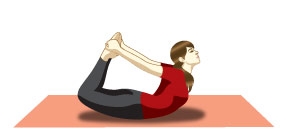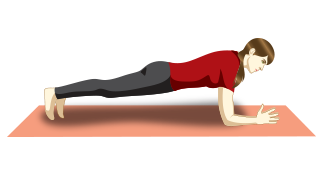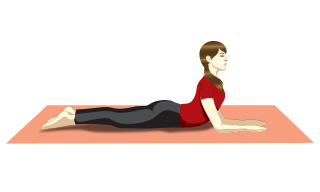 Indira Gandhi Institute Of Yog Services (IGIYS)
Indira Gandhi Institute Of Yog Services (IGIYS) delhi@igiyogservices.in |
delhi@igiyogservices.in |
 +91-9999166524 / +91-9205603775 |
+91-9999166524 / +91-9205603775 |

ICICI Account Details
Netbanking Detais:
Demo Fees Rs 1000/- Payment Details: ICICI Bank Account Name: IGI home yoga OR Pankaj Thakur
Account Number: 100501502855
IFSC Code: ICIC0001005
Branch: Tilak Nagar-110018 New Delhi
Phone Banking:
Googlepay Number: 9205603775
𝕴𝖓𝖉𝖎𝖗𝖆 𝕲𝖆𝖓𝖉𝖍𝖎 𝕴𝖓𝖘𝖙𝖎𝖙𝖚𝖙𝖊 𝕺𝖋 𝖄𝖔𝖌 𝕾𝖊𝖗𝖛𝖎𝖈𝖊𝖘™
![]()
Yoga For Heart Problem And Hypertension
 Introduction
Introduction
Yoga For Heart Problem And Hypertension / Yoga Trainer At Home / Yoga Classes At Home / Yoga At Home / Yoga Teacher (Home Tutor) Delhi




IGIYS Online Yoga Classes

First Month (Free Demo Video)

Second Month (Free Demo Video)
(Watch Free*)
Although yoga is historically a spiritual discipline, it has also been used clinically as a therapeutic intervention. Types of medical conditions have included psychopathological (e.g. depression, anxiety), cardiovascular (e.g. hypertension, heart disease), respiratory (e.g. asthma), diabetes and a variety of others. Yoga therapy is a relatively novel and emerging clinical discipline within the broad category of mind-body medicine. Cardiovascular conditions were almost evenly split between either hypertension or heart disease. Respiratory conditions were predominantly asthma, with a smaller contribution of chronic obstructive pulmonary disease and a few other respiratory conditions. Neurological conditions included mostly headache and epilepsy, whereas musculoskeletal disorders included a wide array of unrelated conditions.
The three types of disorders most evaluated in yoga studies have been psychiatric conditions, cardiovascular disorders, and respiratory disorders. The discrete disorders receiving the most attention were asthma, hypertension, diabetes, depression or dysthymia, heart disease and anxiety. It is likely that the choice of disorder chosen for evaluation of yoga’s effectiveness has a number of contributing factors. One of these is the suitability of yoga’s effectiveness in counteracting stress and reducing autonomic arousal, factors which are known to contribute to these disorders.heart disease, asthma, diabetes and hypertension are amongst disorders with the highest mortality rates.
 As a general guide:
As a general guide:
• high blood pressure is considered to be 140/90mmHg or higher
• ideal blood pressure is considered to be between 90/60mmHg and 120/80mmHg
• low blood pressure is considered to be 90/60mmHg or lower
A blood pressure reading between 120/80mmHg and 140/90mmHg could mean you're at risk of developing high blood pressure if you don't take steps to keep your blood pressure under control.
 Risk of high blood pressure:
Risk of high blood pressure:
If your blood pressure is too high, it puts extra strain on your blood vessels, heart and other organs, such as the brain, kidneys and eyes. Persistent high blood pressure can increase your risk of a number of serious and potentially life-threatening conditions, such as:
• heart disease• heart attacks
• strokes
• heart failure
• peripheral arterial disease
• aortic aneurysms
• kidney disease
• vascular dementia
If you have high blood pressure, reducing it even a small amount can help lower your risk of these conditions.
 Causes of high blood pressure:
Causes of high blood pressure:
It's not always clear what causes high blood pressure, but certain things can increase your risk. You're at an increased risk of high blood pressure if you:
• are over the age of 65
• are overweight or obese
• are of African or Caribbean descent
• have a relative with high blood pressure
• eat too much salt and don't eat enough fruit and vegetables
• don't do enough exercise
• drink too much alcohol or coffee (or other caffeine-based drinks)
• smoke
• don't get much sleep or have disturbed sleep
Follow our simple steps in yoga for heart problems eg cardiovascular (e.g. hypertension, heart disease). Cardiovascular conditions are evenly split between either hypertension or heart disease. The following yoga asanas will help to restore your healthy heart by following few simple steps:

1. Tadasana
(The Mountain pose)

3. Utthita
Hastapadasana
(Extended hands and feet pose)









13. Ardha Matsyendrasana
(Sitting half spinal twist pose)

14. Paschimottanasana (Two legged forward bend pose)

16. Ardha Pincha Mayurasana
(Dolphin pose)
17. Makara Adho Mukha Svanasana (Dolphin plank pose)
18. Salamba Bhujangasana
(Sphinx pose)

19. Shavasana
(Corpse pose)
20. Anjali Mudra (Salutation seal)
Thanks & Regards
Pankaj Thakur
(Director and Founder)
Indira Gandhi Institute Of Yoga Services
Phone: 9999166524
www.igiyogservices.in

 +91-9999166524 +91-9205603775
+91-9999166524 +91-9205603775




